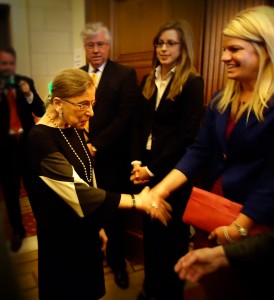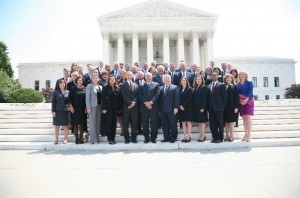By Rick Law, founder of the Law Elder Law Estate Planning Center in Aurora, Illinois.
Medicare is the federal government’s taxpayer-funded acute care health provider for those over 65, blind or disabled. “Acute care” is necessary treatment for a limited period of time with the goal of returning you to a healthy and stable condition. American seniors are provided with acute care healthcare coverage by the combination of Medicare, their own optional Medicare supplemental insurance policy, and out-of- pocket payment of any deductible or healthcare expenses.
Unfortunately for our seniors, the healthcare support network unravels with a diagnosis of Alzheimer’s, Parkinson’s, or other chronic diseases. Medicare does not provide money for long-term care expenses, with some important exceptions such as kidney dialysis, ALS (Lou Gehrig’s Disease) and hospice.
The Medicare payment trigger is the diagnosis of a disease from which you can recover or rehabilitate to a healthy and stable condition. Our senior citizens “win the Medicare diagnosis lottery” when they receive a diagnosis of heart disease, diabetes, or another acute care problem. But every day, seniors lose this “diagnosis lottery” when they receive the bad news that they suffer from Alzheimer’s or other dementias, arthritis, Parkinson’s, stroke or other chronic illnesses.
Medicare pays based on a complicated coding system. If the disease does not have a Medicare payment code, the senior is out of luck. In other words, Medicare will pay zero dollars for an individual who has a diagnosis of Alzheimer’s or Parkinson’s.
The Kaiser Family Foundation estimates that 28 million of the current 42 million Medicare beneficiaries have at least two or more chronic conditions. Since men decline at a younger age than women, too often the burden of care rests upon the women of the family.
Today’s senior woman faces a nightmare as she walks the elder care journey with a frail and declining husband. She learns that Medicare and health insurance do not provide any payment for healthcare costs at home. She finds herself as the primary full-time, in-home caregiver for her increasingly fragile spouse. When her husband must be relocated to a long-term care facility, she discovers that neither Medicare nor Medicare supplemental insurance will pay the facility’s $3,000 to $8,000 per month expense.
Quickly, she learns that Medicaid may not be available to provide nursing home costs in a Medicaid-certified nursing home bed, because she has “too much money.” Her husband’s care will be offset by Medicaid only if she and her husband meet stringent income and asset limitations. This is because Medicaid was originally designed to provide healthcare only for the poor.
There is no governmental benefit for long-term care that does not have a stringent income and asset limitation. If she and her husband have assets of more than roughly $101,000, then the state requires that they “spend down” their life savings, which Medicaid defines as “excess assets.” When all excess assets have been spent on her husband’s medical care, then Medicaid will also restrict her monthly income to $2,500 per month. If she has monthly income in excess of $2,500, then the excess must be paid towards her husband’s cost of care.
When her husband dies, she will receive even more bad news. As the “survivor spouse” she loses one of their two Social Security checks, and she often loses his pension. She has spent most or all of their assets to provide for her husband’s care, so she may not be able to afford to continue to live in her home. Many women are forced to sell their homes and move in with family members. The nightmare of long-term care has impoverished these women and stolen their independence.
She will not have the luxury of a spouse who will serve her as she served him. No one will be there to dutifully care for her at home and to delay the day that she must move to a long-term care facility. She will not have the financial resources that he had, because Medicaid called that “excess liquid assets” and she spent those assets on his care.
As a single person, she will not be provided with assistance by the State of Illinois or the federal government until she has become impoverished to the point of a paltry $2,000 or less in total assets. The indignity committed against her does not stop there, for now she must sign over all her income to the nursing home, except for a miserly “personal needs allowance” of only $30 per month.
The loving wife who faithfully cared for her husband is now out of money and out of options. $30 per month doesn’t even cover the privilege of having her hair done. She is living the nightmare of long-term care in America.
Too many families needlessly lose everything they have. Don’t let that be you. If you need help paying the overwhelming cost of long term care, give our office a call at 630-585-5200 or 800-310-3100. Your first consultation is absolutely free. We’ll let you know what steps you need to take, right now, to protect yourself and your family. Call now, because when you’re out of money, you’re out of options!
Sincerely,
Rick L. Law, Attorney, Estate Planner for Retirees.
Rick was named the #1 Illinois elder law estate planning attorney by Leading Lawyer Magazine. He has been quoted in the Wall Street Journal, AARP Magazine, TheStreet.com, and numerous newspapers and articles. Rick is the lead attorney for Law Elder Law, LLP, focusing in Estate Planning, Guardianship, and Nursing Home Solutions. His goal is to give retirees an informed edge when it comes to dealing with an uncertain future. Get flexible retirement strategies that work during good times and bad, plus information on how you can save your home and assets from being used to pay for long term care. Conveniently located off I-88 across from the Aurora Premium Outlet Mall.



